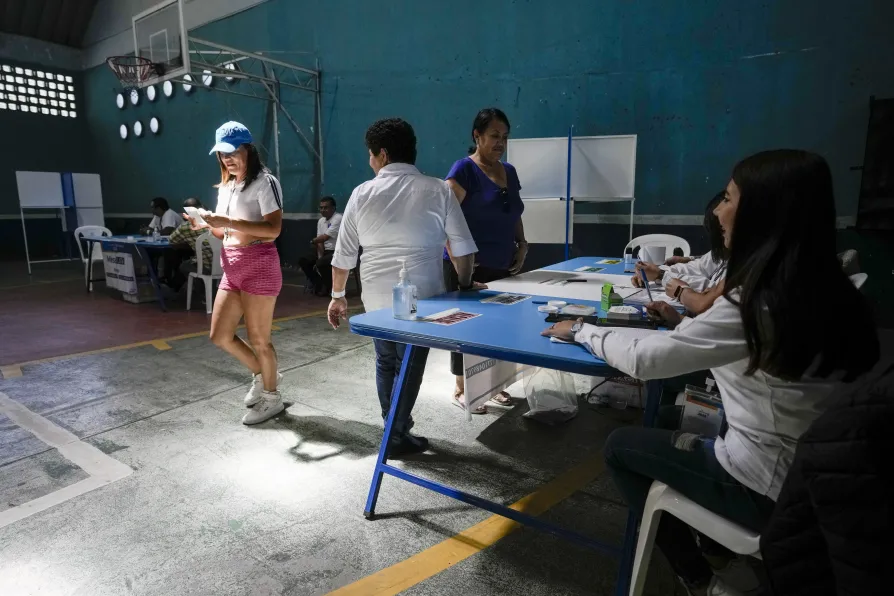
 GUATEMALA: Voters choose their candidates in the run-off presidential election in Guatemala City
GUATEMALA: Voters choose their candidates in the run-off presidential election in Guatemala City
VOTERS in Ecuador and Guatemala headed to the polls yesterday to decide on the two Latin American nations’ futures.
In Ecuador, a special election to select a new president was held amid a high police and miltary presence and concerns of violence following weeks of unprecedented events, including the assassination of one of the candidates.
Frontrunners include an ally of exiled left-wing former president Rafael Correa and a millionaire with a security background who has pledged to crack down on crime.
Authorities deployed more than 100,000 police and soldiers to protect the vote against further violence.
Voting in Ecuador is mandatory for most people, but turnout could be affected by many fearing to leave their home.
The National Electoral Council president Diana Atamint urged voters yesterday to unite against violence.
She said that voting “should be a strong democratic message of unity and hope to face the violence that threatens our country, even though pain overwhelms us.”
Candidate Fernando Villavicencio was assassinated on August 9 as he left a campaign rally in the capital Quito.
His killing heightened people’s concerns about stepping out of their home and becoming victims of a robbery, kidnapping, extortion, murder or any of the other crimes that have become commonplace.
Mr Villavicencio’s death was the third and most prominent in a string of killings of political leaders this year.
Guatemalans also began voting to elect a new president out of two candidates in a run-off election.
The public hopes that a new leader can provide the country with relief from rising prices and curb crime and corruption.
Candidate and former first lady Sandra Torres, an ally of outgoing and deeply unpopular president Alejandro Giammattei, was making her third bid for the presidency.
Her opponent, the Seed Movement’s Bernardo Arevalo, is a former diplomat and the son of the country’s first left-wing president Juan Jose Arevalo.
His father is still revered by many for establishing fundamental elements of Guatemalan society such as social security and workers’ rights.
Guatemala has Central America’s largest economy but continues to struggle with widespread poverty and violence, which have driven hundreds of thousands of people to emigrate in recent years.
Sixty-year-old farmer Juan Xocoxi Chocoyo, who was one of the first in line to vote, said: “Sometimes there’s no work and there are poor who go hungry.”

Home Secretary Cooper confirms plans to ban the group and claims its peaceful activists ‘meet the legal threshold under the Terrorism Act 2000’

US president says his nation might join forces with Israel in attacking Iran
















